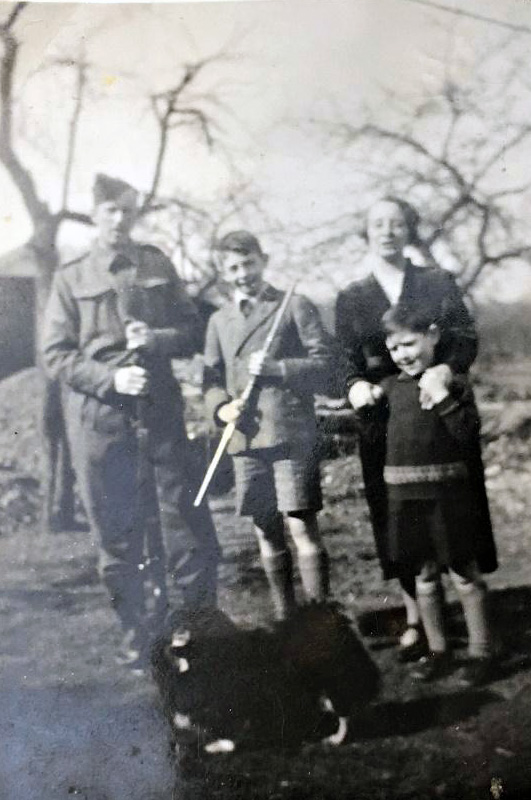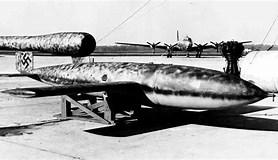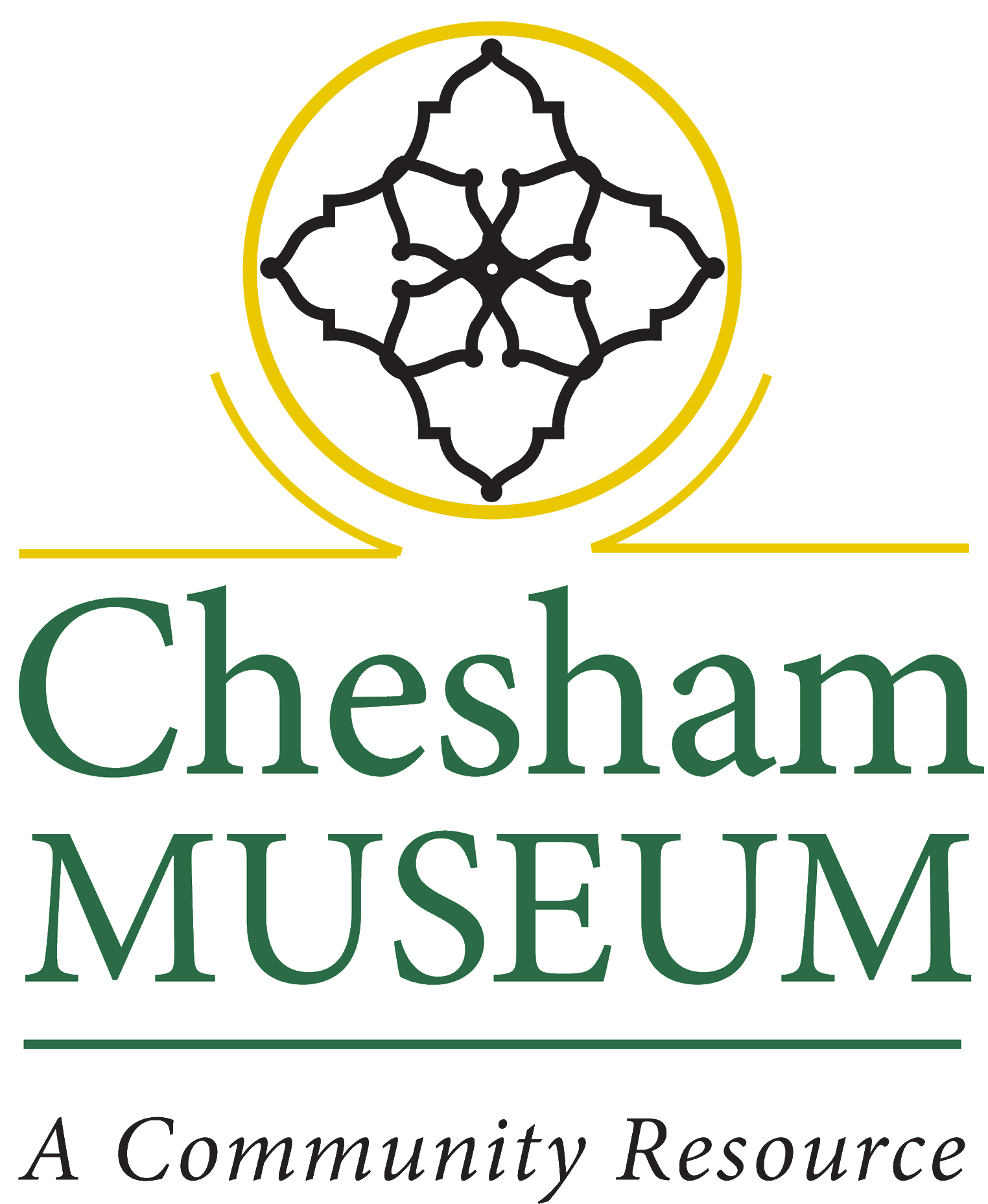Bernard Hughes evacuee
We lived at 67 Harberton Road, Archway in London N19. My father was a builder. I was the youngest of six; I had four older brothers and an older sister. During the war my oldest brother Ken was a pilot, Eric was a naval rating sailing Macboats which carried grain from North America and Howard was old enough to join the army towards the end of the war. The family were very strong members of the Salvation Army.
Evacuated out of London
Soon after war was declared there was mass evacuation of children from London. My brother, Bramwell (8), sister Dora (6) and I were evacuated to Dunstable. We walked to the school in Duncombe Road (now City of London Academy, Highgate) where we were put on the buses taking us to Dunstable.
When we arrived in Dunstable we were taken to a large tiered classroom which had a large model of Noah’s Ark. I think my mother left a note saying that she wanted us to be placed with a Salvation Army family.
That’s how we ended up with Mrs G who was a Salvationist living in Albion Buildings (since demolished). Mrs G had three daughters; one objectionable, one friendly and one, Violet who was a little older than me. I don’t think I ever saw the father.
Mrs G billeted soldiers and evacuees to make an income. I think Mrs G and her family had a hard life. Being evacuees in the family was not a satisfactory arrangement because we often had to share a bedroom with soldiers. At age 4 you accept what happens.
We were always hungry and Dora used to go down into the cellar to get more food. She also ordered two bars of chocolate and put it on Mrs G’s bill; Mrs G was furious! We stayed there about 10 months.
I did have one happy memory; soon after we arrived we went for a walk on Dunstable Downs where we saw lots of children having fun building camps with tents and bracken. I also remember going to school – for half days.
Then my mother came to visit us. She brought me a present but I said I didn’t want it because Violet would take it. My mother was not happy with the arrangements and took the three of us away. Bramwell and Dora were placed with another Salvationist family in Dunstable but I was taken to stay with my Uncle Fred and Auntie Gertie in Chesham. I feel they rescued me.
My move to Chesham
Uncle Fred was my father’s brother. He worked as an agent for the Salvation Army Assurance Society and drove round in uniform calling at houses every week in the Chesham area (including Hemel Hempstead and Bovingdon) to collect penny policy subscriptions. He and Gertie had a son, Norman who was four years older than me.
The Salvation Army figured large in their lives. Uncle Fred played in the band and, aged 5 or 6, I went along and played the tenor horn under Mr Cox the bandmaster. Norman played side drum or bugle in the Church Lad’s Brigade rather than Salvation Army. That was because he was a secret smoker which was forbidden in the Salvation Army. Auntie Gertie was a singer with the Salvation Army Band.

Uncle Fred and Auntie Gertie’s house was 18 Vale Rise. It was a three bedroom semi-detached house with a very long garden. The road was unfinished so there were fields at the top of the hill; they are all built over now. The air raid shelter was a car with no wheels sunk into the ground. We never used it because there were no air raids. Uncle Fred drove a car for his work and also drove for the Home Guard.
Chesham was a lovely place. We used to toboggan down the hills and there was a boating lake at Lowndes Park; now a pond next to the by-pass. I remember marching with the Salvation Army band. Early on Easter morning we marched across the Broadway – there was hardly any traffic – playing Easter hymns and people at the bus stop watched us. Major Mason asked band members to suggest a favourite chorus the band could play. I suggested ‘Roll out the Barrel’ and was told “we don’t play that sort of thing.”
I have some clear memories of school. We had to walk up a hill that ran parallel to the road leading to the station (White Hill?). I remember sitting in the hall listening to a BBC Schools Broadcast story of The Pilgrim’s Progress. It always started with playing the Trumpet Voluntary. It was very dramatic with a good cast of characters and clearly made a deep impression.
Sometimes I went with Uncle Fred in his car when he collected the policy subscriptions. On one occasion, he got out of the car and walked down the garden path to knock on the door. The car started rolling down the hill with me in it. I called out of the car window and I’ve never seen Uncle Fred run so fast; he jumped into the car and pulled on the hand brake.
We used to travel on the bus to Amersham to visit the cinema on Sycamore Road. It has been demolished many years ago and replaced by a building that housed Iceland Supermarket; that was recently demolished and replaced by new shops and apartments. I remember seeing Spencer Tracey in The North West Passage (1940). It was a very exciting boy’s adventure story involving fighting off attacks by American Indians which would now be seen as racist. It was nominated for an Oscar in 1941 but lost out to The Thief of Baghdad.
I occasionally caught the bus to Hemel Hempstead. There was an American air base at Bovingdon and I remember crowds of American airmen at the bus stop, squeezing onto the bus for a night out in Hemel.
Returning to London
I was aged 8 when I left Uncle Fred and Auntie Gertie in 1943/44. The London Blitz had finished and parents thought it was safe for children to return. The photograph below as taken in my school in London, Whittington School, HighgateHill. Notice the bricked-up windows behind us. I am the scowling boy on the left!

Of course, we didn’t miss the V1 ‘doodlebug’ rockets which were targeted on London in 1944.

One of these landed harmlessly in Waterlow Park near to where we lived so we went to look at it. There were big crowds all with the same idea.


